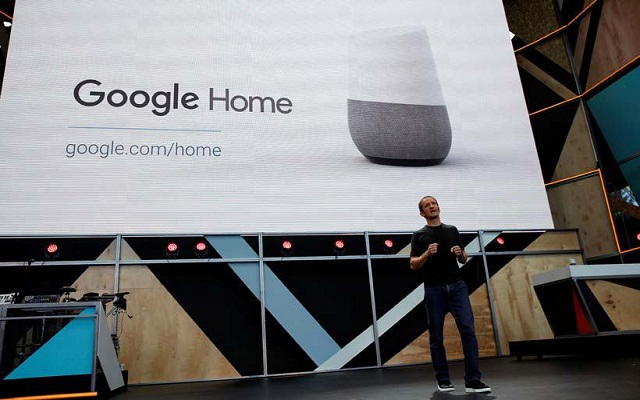Google 2016 Important Announcements: Google Assistant, Home, Allo and More
Google Assistant Google Assistant is the company’s attempt to create a conversational assistant, rather than the current Google Now, which is well more search-based. Google Assistant is going to be present pretty much everywhere, and will rely on machine learning and natural language to have a conversation with users. said Google CEO Sundar Pichai during his keynote. It is not clear when Google Assistant will roll out for users. Google Home The WiFi-based speaker can stream music directly from the cloud, let users control other speakers in their home, control their Smart Home networks including lights thermostats, etc and has support for Google’s Nest. In the future, Google Home might be able to order food, book flight tickets for users. Google Home will be available later this year, and the pricing has not been confirmed.
Google Allo Allo is a new intelligent messaging app for Android and iOS, based on machine learning, computer visioning, and assistive technologies. Allo has features like Expressions with Whisper and Shout, where users can either make the text appear really large (for shout) or really small (for whisper). Users can also add text on photos sent on Allo, which Snapchat currently offers. It will even offer smart replies when someone sends a photo, and builds on Google’s Photo capabilities to understand context and chooses a reply based on the exact image. It creates a conversational response, like say ‘Yummy’ to a picture of pasta. Google Duo The app features a clean user interface, encrypted video transmission, and proactive network quality monitoring with seamless switching between Wi-Fi and cellular data. Duo will be available this summer. Android N Google says the response to the Android N Developer Preview has been overwhelming. Also the company is inviting entries from users to send suggestions for ‘dessert’ name for Android N. In Android N, Google has introduced Vulcan API to give game developers direct control of the GPU to improve high-end graphics gaming. Android N also sees improved security with file-based encryption, media framework hardening (splits out key subsystems) along with seamless updates. The smartphone will now automatically download the update on your phone. Android N gets a split-screen called multi-window view for tablets, phones and a new window-in-window features on Android TV that lets users watch something, while continuing with another task. DayDream for Android N Virtual Reality also gets a big push in Android N with a new DayDream platform, which will launch this Fall. DayDream is Google’s platform for high-quality, immersive mobile VR experience on Android smartphones. Google is looking at the whole VR ecosystem; from smartphones which have the right specs and are ‘DayDream’ ready, to VR headsets to apps. Google’s DayDream VR platform. DayDream in Android N means high performance, low-latency to ensure better VR experience. Google says Samsung, Xiaomi, LG, Alcatel, HTC, Huawei, will soon all have smartphones that are DayDream ready. Google has also created a reference design for ‘headsets’ which will work across these smartphones. The first of these VR headsets will start launching in Fall. Google has also built a special controller for these headsets, which control the sensors. It will also be part of the reference design. Android Wear 2.0 Google unveiled a major new version of its wearable software platform today. Android Wear 2.0 will feature standalone apps, smart reply suggestions, improved handwriting recognition, a miniature swipe-based keyboard, customizable watch faces, Google Fit integration, and more. Android Instant Apps Android Instant apps will work, without the need to download the app. Based on the demo, when a Buzzfeed video Link appears, Google Play fetches only the ‘part’ of the app that is needed at the moment and starts playing the video or link in the app. So the user is not required to download the app, and gets an “app-like” experience. Android Studio Android Studio 2.2 is to help developers run their apps faster (10x) with the ability to deploy changes, even in a running app. The Emulator and push speeds are faster, and it will benefit developers who want to quickly push out their new apps. It also includes the ability to record test code as well, APK analyser, a new Layout inspector, and expanded Android code analysis. More Machine Learning APIs Google CEO Sundar Pichai spoke about how Machine Learning is changing and improving at the company. said Pichai. Google’s Cloud Platform will get machine learning capabilities, computer vision API and speech-language and translation APIs. Google plans to add more machine learning APIs to its Cloud platform in the future. Google is also building special TPU (TensorFlow Processing Units), which also powered Google’s AlphaGo program, to boost its Cloud Platform’s capabilities. Source: Indian Express
